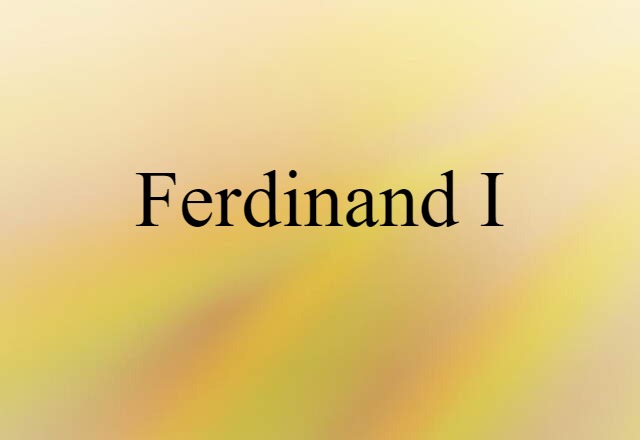- king of Castile 1033–65, king of Navarre and Leon 1037–65; emperor of Spain 1056–65.
- king of Bohemia and Hungary 1526–64; emperor of the Holy Roman Empire 1558–64 (brother of Emperor Charles V).
- king of Bulgaria 1908–18.
- known as Ferdinand the Great. ?1016–65, king of Castile (1035–65) and León (1037–65): achieved control of the Moorish kings of Saragossa, Seville, and Toledo
- 1503–64, king of Hungary and Bohemia (1526–64); Holy Roman Emperor (1558–64), bringing years of religious warfare to an end
- 1751–1825, king of the Two Sicilies (1816–25); king of Naples (1759–1806; 1815–25), as Ferdinand IV, being dispossessed by Napoleon (1806–15)
- 1793–1875, king of Hungary (1830–48) and emperor of Austria (1835–48); abdicated after the Revolution of 1848 in favour of his nephew, Franz Josef I
- 1861–1948, ruling prince of Bulgaria (1887–1908) and tsar from 1908 until his abdication in 1918
- 1865–1927, king of Romania (1914–27); sided with the Allies in World War I

More Definitions
- VINO (noun) Definition, Meaning & Examples
- BODICE RIPPER (noun) Definition, Meaning & Examples
- STALIN'S PURGE TRIALS (noun) Definition, Meaning & Examples
- VEHICULAR (noun) Definition, Meaning & Examples
- WRIT OF EXECUTION (noun) Definition, Meaning & Examples
- SEPMAG (noun) Definition, Meaning & Examples















